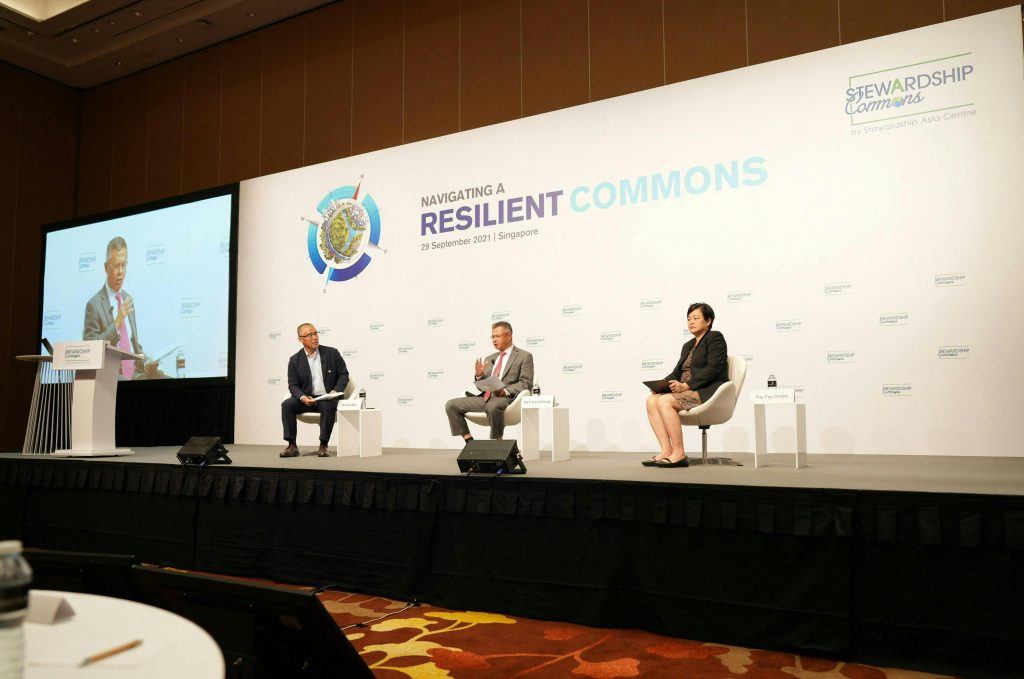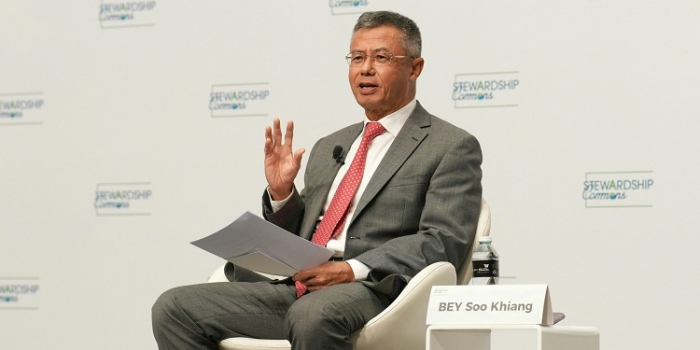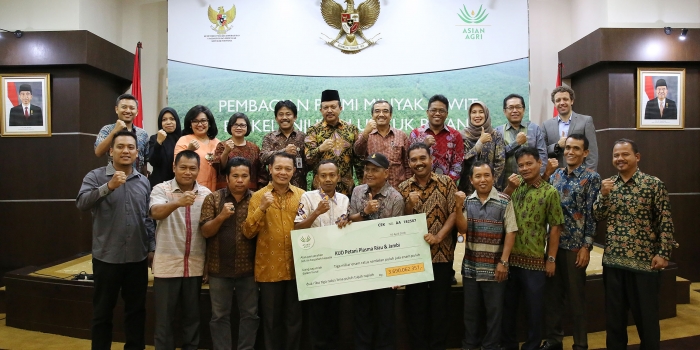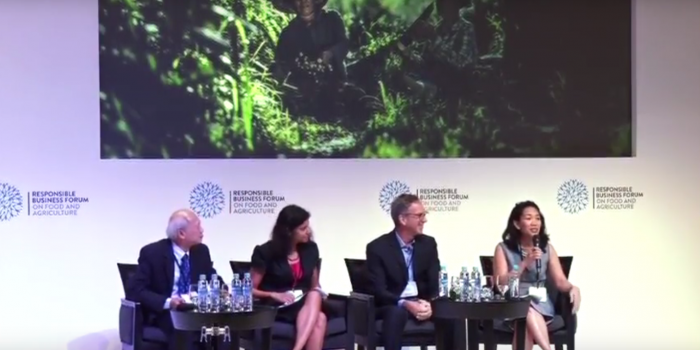Businesses have to approach their activities with a stewardship mindset. They need to understand their footprint and impact, take ownership and adopt the necessary intervention measures in line with science. In doing so, they can negate domestic impact and consequently international spillover.
RGE Vice Chairman Bey Soo Khiang shared these insights at a panel discussion titled ‘Embracing the Global Commons Stewardship (GCS) Index for Business’ at the Stewardship Commons 2021 conference on 30 September in Singapore, organised by Stewardship Asia. He also highlighted how multi-stakeholder partnerships and a science-based approach could be leveraged to help minimise negative environmental impact at the domestic level in order to more effectively safeguard the global commons.
Mr Bey, who is also Chairman of pulp and paper producer APRIL Group, was joined by fellow panellists Fay Fay Choo, Mars Incorporated Asia Cocoa Director, and Prof Naoko Ishii, Director, Center for Global Commons & Executive Vice President, The University of Tokyo. Senior Vice President, Asia-Pacific Field Division, Conservation International Dr Richard Jeo moderated the discussion.
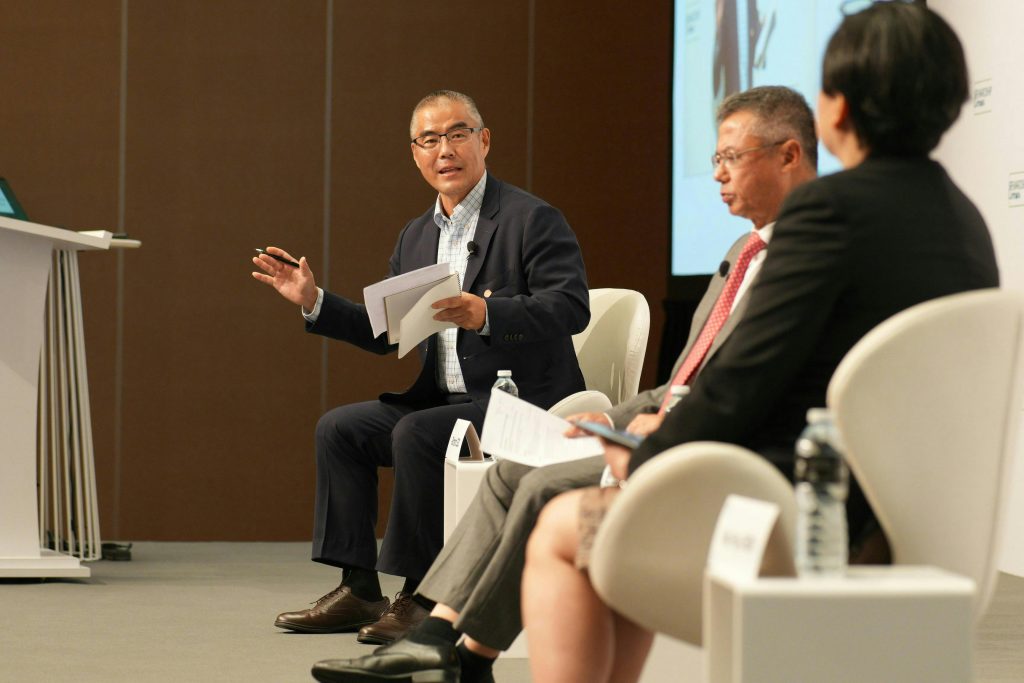
Stewardship Commons 2021 panel discussion. Image courtesy of Stewardship Asia.
Navigating a Resilient Commons
Themed ‘Navigating a Resilient Commons’, the Stewardship Commons 2021 conference introduced the GCS Index and Stewardship Compass as tools to better safeguard the global commons. Mr Bey believed the GCS index can provide a common language between companies, communities and countries (governments) to identify the “where”, “what”, “why” and “how” of the global commons, and find solutions to addressing them accordingly.
Mr Bey’s views of frameworks and tools that catalyse cohesive collaboration echo those he previously made about the United Nations Sustainable Development Goals in 2018. Such frameworks help support and steer multi-stakeholder partnerships along common goals, indicators and measures. Further, longitudinal efforts in global commons and environmental stewardship have to remain informed by an evidence-based approach, so they may be better calibrated for impact-at-scale.
Environmental Stewardship and Sustainable Development
The Stewardship Commons 2021 conference follows the announcement by APRIL Group that it recently joined over 20 other global companies, such as Nestle, PepsiCo and Unilever, in a pledge to help conserve, restore and grow more than 2.5 billion trees in over 50 countries. This September 2021 announcement was part of the launch of the 1t.org global pledge at the World Economic Forum’s Sustainable Development Impact Summit.
With a production capacity of 2.8 million tonnes of pulp and 1.15 million tonnes of paper annually, APRIL Group now manages 0.8 hectares of restoration and conservation forests for every one hectare of its renewable forest plantations. The conservation and restoration area managed by the company includes its 150,000 ecosystem restoration programme in the eastern coastline of Sumatra, Indonesia, called Restorasi Ekosistem Riau. The recent announcements come on the back of APRIL’s continued implementation of its APRIL2030 strategy, which is comprised of a set of ambitious sustainability goals to be achieved by 2030.
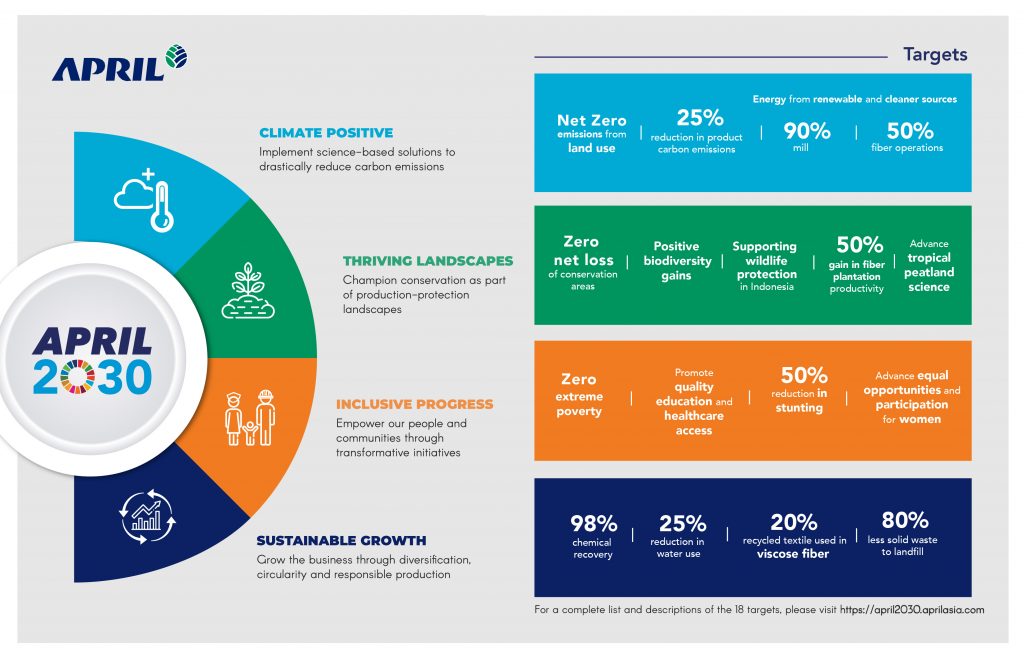
APRIL 2030 commitments and targets
Having shared the environmental stewardship journey of APRIL Group, Mr Bey highlighted at the conference that taking ownership remained an important consideration. He said that ownership was not just limited to shareholders and management, but also the men and women on the ground. He cited APRIL’s 2030 commitments represented a collective desire by all employees in the group to effect impactful change from the ground up.
RGE companies are no strangers to designing and implementing ground-up initiatives for communities and the environment. In addition to implementing no-burn policies across its operations, APRIL Group piloted the well-received Fire-Free Village Programme in 2014, yielding immediate impact through the significant reduction of forest and land fires. The company later expanded the programme, which currently spans an area of 693,187 hectares through partnerships with 33 villages and which has helped reduce burnt areas in the partnering communities by up to 90%. The community-based programme also inspired the formation of the Fire Free Alliance, comprising companies in forestry and agriculture, and other like-minded organisations. The reduction of land and forest fires continue to contribute to the mitigation of transboundary haze.
Believing that sustainable businesses beget sustainable outcomes for communities and environment, Mr Bey added in closing, “Companies should also not just be preoccupied with the cost of adopting sustainability, but equally important, to consider the cost of not adopting sustainability.”
